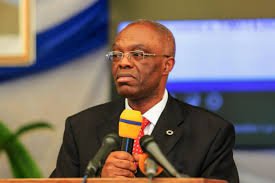Hussaini Kafi in Kano
The World Health Organization (WHO) has called for intensified cross-border collaboration among Nigeria, Niger, Chad, and Cameroon to eliminate circulating vaccine-derived poliovirus type 2 (cVPV2) in the Lake Chad Basin.
The call was made during the Meeting on Enhanced Cross-Border Synchronization of Activities in the Lake Chad Basin Countries, held at the Abuja Continental Hotel, Nigeria, from February 3 to 8, 2025.
Delivering his speech at the event, WHO Country Representative, Dr. Walter Kazadi Mulombo, commended the affected countries for their coordinated efforts in tackling cVPV2.
He noted that Africa’s successful eradication of wild poliovirus was achieved through regional collaboration, coordination, and teamwork, expressing optimism that similar efforts would lead to the eradication of cVPV2.
“The global milestone for interrupting cVPV2 continues to be missed, and meeting the revised 2025 target cannot be overemphasized,” Dr. Mulombo stated. “It would be a great relief to millions of children in Africa to be risk-free from paralysis caused by all forms of polio by the end of this year.”
Mulombo identified insecurity, prolonged humanitarian crises, high displacement rates, and mobile populations as major obstacles to polio eradication in the Lake Chad Basin.
These challenges, he said, make the region a hotspot for persistent polio transmission.
Despite these setbacks, he praised the affected countries for continuing to plan and implement vaccination and surveillance programs across their borders.
“The people living in these communities know no boundaries, and I am informed that countries have leveraged this reality to strengthen their response,” he added.
Stronger Stakeholder Involvement and Accountability
Mulombo emphasized the need for stronger collaboration, improved intervention efficiency, and greater stakeholder involvement, including traditional rulers and local gatekeepers. He called on all levels of government and health agencies to remain accountable in ensuring that every child receives polio vaccination.
“As we review performance, I hope that lessons learned from different countries will strengthen our collective efforts in addressing the existing bottlenecks,” he said.
To reinforce coordination, WHO Representatives (WRs) in the affected countries have committed to supporting the eradication effort. Dr. Mulombo assured participants that WHO remains dedicated to achieving a polio-free Africa.
“To conclude, let me assure you of WHO’s commitment to the goal of polio virus eradication in all countries. I wish you fruitful deliberations and look forward to your recommendations,” he said.
As the Abuja meeting progresses, participants—including government officials, health experts, and international partners—are expected to outline strategies for overcoming security and logistical challenges.
Their goal is to strengthen cross-border coordination and improve the quality of vaccination campaigns before the 2025 deadline.
With millions of children’s health at stake, the Lake Chad Basin remains a crucial battleground in the fight against polio. WHO’s latest call for action signals the urgency of the situation, making 2025 a decisive year in the battle to eradicate the virus once and for all.



